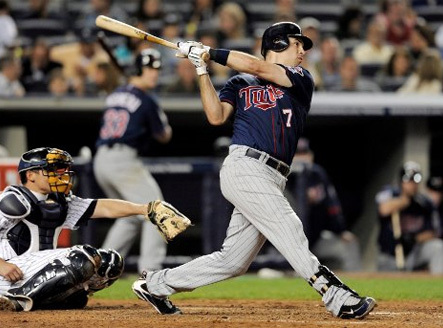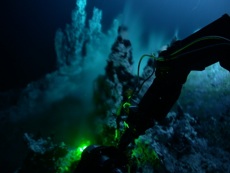Why do you go outside?
Feeling guilty? Too much screen time? Is your kid glued to her phone? Worried about the dead zone in the Gulf of Mexico, or that hole in the ozone? Trying to make amends for driving your car too much, eating the wrong food, using too much water, not recycling enough, buying annuals or laying on the couch on a beautiful day?
 |
| green retail South Korea |
Perhaps some or all of the above motivates you to walk out the door. Perhaps, though, we need to re-think our approach to outside time. Richard Louv made a lot of parents very stressed out about how they were raising their kids. Technology and modern life are the twin boogey men of Louv's "Nature deficit disorder" and
Last Child in the Woods. Louv certainly re-invigorated a movement that has been in the offing since Henry David and the rusticators who founded the Boy Scouts, Girl Scouts and Camp Fire. Actually, this green movement probably starts with Buddha, Christ or anybody who tried to draw attention to the rewards we reap when we sow with the natural world. Louv joined centuries of folks who offer nature as an antidote to our ills. Louv's take on our ills, particularly here in the US, are familiar. Too many of us are plump, lazy, pale industrialists lolling in suburban basements or shuttling our kids around to too much structured activity. I'm not really trying to argue the point, but I suggest that there might be a healthier way to think about our relationship with the natural world than swallowing guilt every day, especially when it comes to technology. I'm trying to see our relationship with a both-and mindset.
 |
| National Ecology Center South Korea |
There's no going back anyway. Sometimes my inner Luddite goes a little nuts or gets sad. I am one of those people who gets a sinking feeling when I consider the pervasiveness of technology in our lives. And yet, it's here to stay. Much good comes of all of this innovation. And yet, there is no question that we are evolving as a species
with technology, as we've always done. Sticks, wheels, food production, cars-- they've all changed our physiology. This generation's baby brains are growing differently in response to the way we all now live with technology, no question. We shall see how differently, but the markers are there, the research is afoot and the evidence is being gathered. Seems to me we would do better to raise our children to think of technology and nature as two great facts of life, with neither feared or mourned. We would do better to be motivated by joy and anticipation when it comes to nature, than to be cowed into it by virtue of our lack of virtue. If we go "both-and" on this, we might end up growing creative stewards of the environment who embrace both natural and man made systems. After all, don't these systems have a lot to teach each other?
 |
| High Line NYC |
I'm not suggesting we lose the fire in our bellies when it comes to smartening up very quickly about spoiling the planet-- no excuses on this issue. I'm suggesting we settle into the idea that technology and nature
will co-exist-- we should figure out positive ways to make that happen for the satisfaction and protection of us all.
 |
| Spark-Y: small scale, sustainable, high tech ag |

I don't know enough about
Seth Godin to know if I agree with him on all of his thinking about marketing, but I do find his thinking about the dichotomies of modern human existence, his brand of "both-and" thinking compelling. He says this about his habit of mind around failure:
"the habit I developed was that that's not a "no," that's a "no for now." That's not a "this will never work." That's a "this didn't work." But I learned something about what might work for next time."
For me, this throws into relief our collective habit of thinking about the technology and nature relationship, our tendency to throw our hands in the air and say, "this will never work." Keep reading:
 "People impart a lot into the notion of evolution-- some of which wasn't Darwin's work itself. But what is important here is not only do times change, but those times change, not just our stories about ourselves and our expectations, but they actually are changing our brain. So you know, when the Industrial Revolution came, there were 20 years when basically everyone in Manchester, England was an alcoholic. Instead of having like coffee carts, they had gin carts then went up and down the streets. Because it was so hard to shift from being a farmer to sitting in a dark room for 12 hours every day doing what you were told. But we evolved, we culturally evolved to be able to handle a new world order."
"People impart a lot into the notion of evolution-- some of which wasn't Darwin's work itself. But what is important here is not only do times change, but those times change, not just our stories about ourselves and our expectations, but they actually are changing our brain. So you know, when the Industrial Revolution came, there were 20 years when basically everyone in Manchester, England was an alcoholic. Instead of having like coffee carts, they had gin carts then went up and down the streets. Because it was so hard to shift from being a farmer to sitting in a dark room for 12 hours every day doing what you were told. But we evolved, we culturally evolved to be able to handle a new world order."
 |
| measuring redwoods |
My guess is that we are in a process of evolving and adapting to a new world order with technology. And we're not quite through the messy bit. Maybe we're a bit like alcoholics when it comes to our phones-- it's probably time to think about drying out. A lot of people who love technology, folks who make their living engineering the stuff, they take technology Sabbaths and Shabbats-- 24 hours without a phone or a screen. Ok, maybe sometimes nature
is the antidote. But maybe sometimes it's just nature, neutral. Maybe a technology fast means you go outside, and maybe it means you play a board game with your kids. Maybe sometimes when you go out for a day at the beach, you bring your phone along. Both-and. And, if you're going to practice mindfulness, that means paring down and being present. Take a break from doing 5 things at once. Focus. My daughter has told me that minecraft is like meditation. She says the same thing about swinging a yo-you or sitting in her favorite maple tree. But you lose the effect if you do them all at once, right? We crash our cars when we text and drive. Bad. But driving, especially a car that doesn't pollute, well that can be quite good, especially if Queen is on the radio.

Our kids are going to grow, no matter what. It's
how they will grow and who they will become that causes parents and educators our regrets about the past and our anxieties about the future. Balance, not guilt, can be our guide.

Try to look for beautiful examples of the balance or interplay of nature and technology in your life and in our world. I think these intersections teach us about possibility and give us hope.





